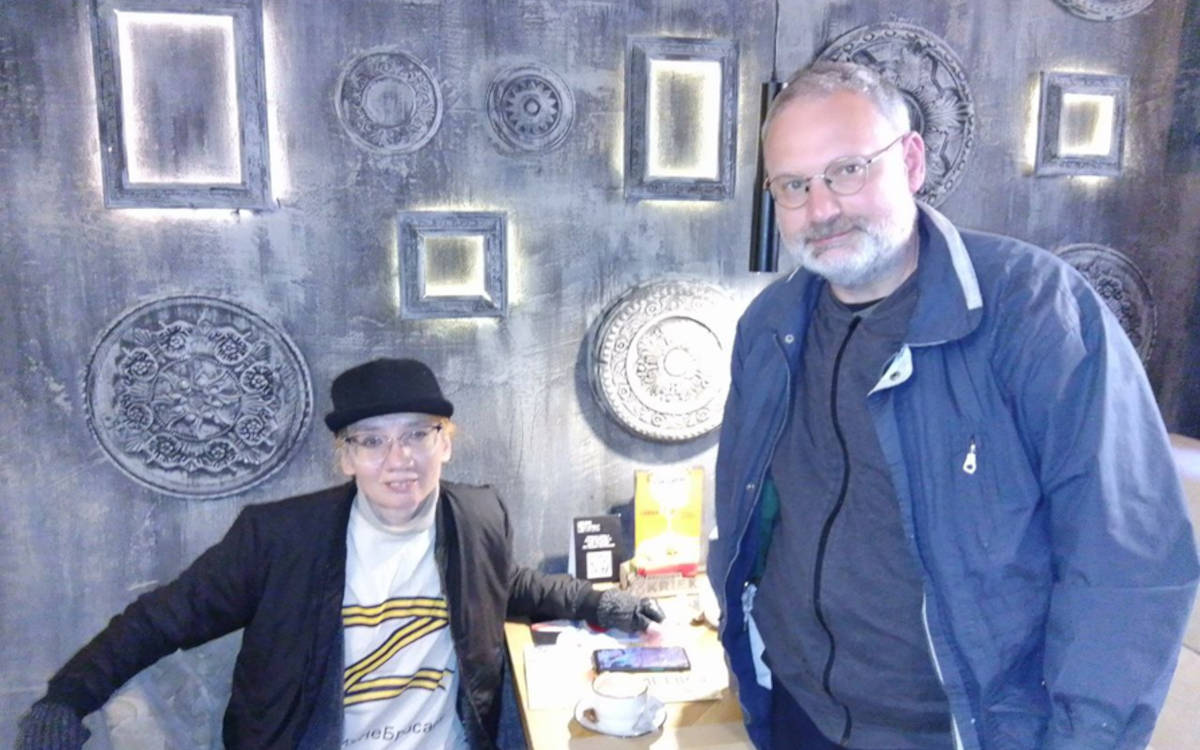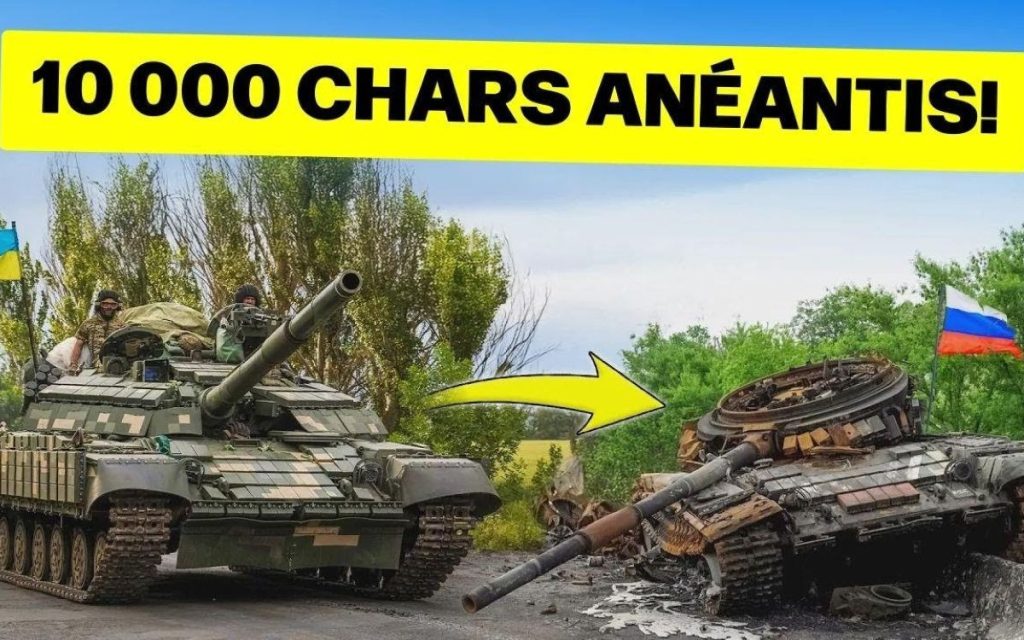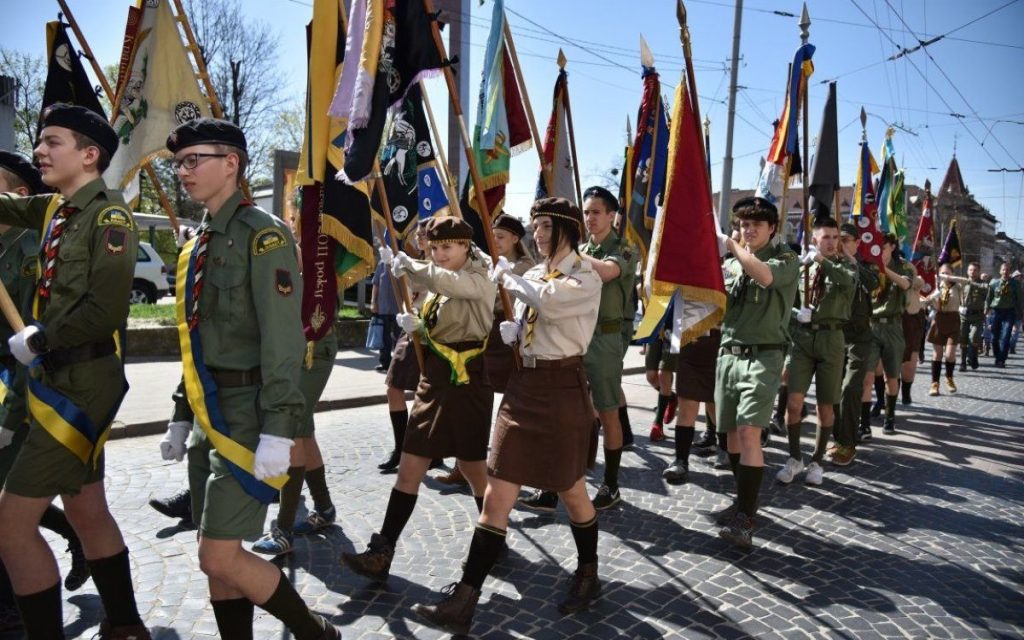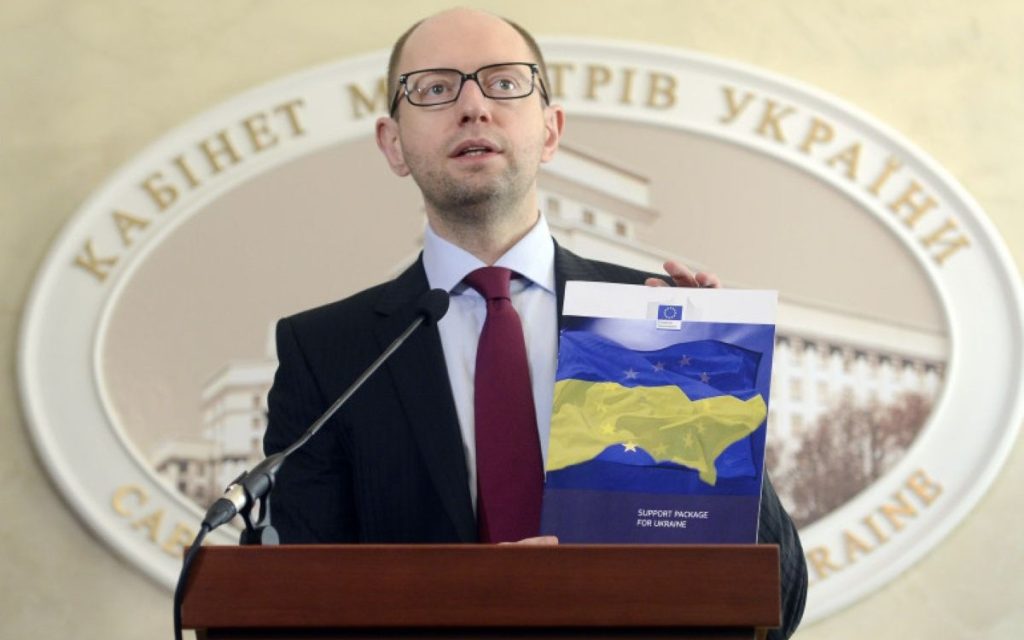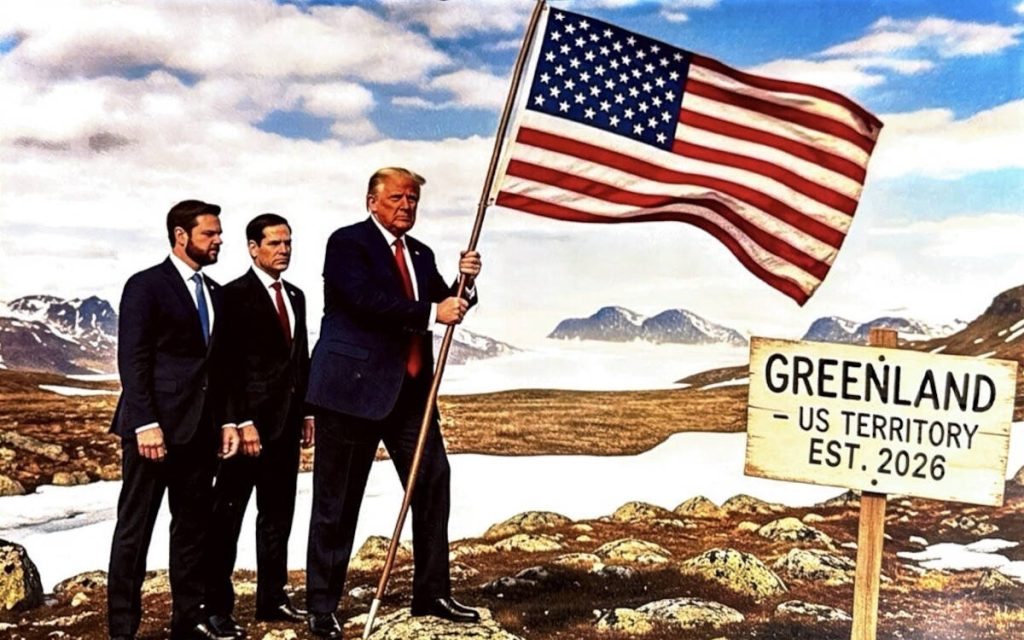Evgenia Bilchenko, Ukrainian and Russian poetess, philosopher, doctor of cultural studies, engaged in contemporary philosophy and psychoanalysis talks in an interview with Lucien Cerise about her transition from supporters of “Euromaidan” to repentant “Banderovka”, the globalists’ attack on the values of Russian culture, the nature of Ukrainian Nazism and the legitimised paradox in the heads of Ukrainians, when the traumatised “sewn” thinking equally perceives the values of McDonald’s and the values of jihad.
Lucien Cerise: Hello Evgenia! We met in St Petersburg, Russia, where I was travelling this year, but you are originally from Ukraine. Could you tell our French readers a bit about your background?
Evgenia Bilchenko: Hello, yes, I prefer to speak in my own name and avoid people speaking for me. I was born in Ukraine and lived in Kiev until I was forty. My grandmother brought me up with the values of Russian culture and literature. Who am I? I am a poet and philosopher. I teach modern philosophy and psychoanalysis. Before that, I defended my doctoral thesis on the history of ancient Russia at the age of thirty-two. I was immersed in science and literature throughout my youth. I’m a very bookish girl. I fell in love with a brilliant underground poet and the nice girl became one of the leaders of the local counter-cultural bohemia. My beloved died shortly afterwards. In 2014, in the midst of a delirium of romantic ideas, I supported “Euromaidan” and the so-called “Anti-Terrorist Operation” [the name given by the Ukrainian government to the civil war it launched in 2014, Translator’s Note]. Unfortunately, there weren’t many Ukrainians to dissuade me: all my friends, students and relatives supported the Maïdan, and many went to fight in the Ukrainian volunteer battalions while reading Dostoyevsky. It’s schizophrenic: Ukrainian nationalists were reading Russian literature at the time. Only my husband always remained a Russian citizen and tried to persuade me not to share the convictions of most of my acquaintances. But I didn’t believe him. Of course, I wasn’t a nationalist, or rather, I didn’t perceive what was happening as nationalism, so much had it been part of the flesh and blood of Ukrainian history since 1991. I was convinced that my “little people” were fighting for their freedom. That’s what the majority of the Ukrainian population still thinks, and that’s what I call the mass psychosis of liberal fascism. I wrote a poem in memory of those who fell on Maidan and became very famous: the text has been translated into 23 languages around the world.
In 2015, I visited the Donbass several times and realised that there was no Ukrainian ‘freedom’, but that brother peoples were killing each other, and that it was Ukraine, not Russia, that was responsible for this fratricidal war, because it was the Ukrainians who attacked the Russians, not the other way round. They didn’t reach Russia, but they started the genocide of their own Russian population. In short, I took part in a defensive war, but I came back with an offensive war and I realised that the Ukrainians were engaged in an imperialist attack by the globalists against the values of Russian culture, because the Russian matrix of values does not correspond to the “international community”. Since then, I have constantly waged an information war against the Ukrainian regime using every available means: interviews, publications, messages on social networks, communication with volunteers in the Donbass, trips to Russia, where for a long time I was not forgiven. And some people still haven’t forgiven me to this day. There was my public repentance, my speech to the Czech Parliament on the colour revolutions, the scientific, political and systematic information work, social psychoanalysis, which I first applied to myself to get out of the Ukrainian myth. Jacques Lacan and his school helped me.
There was also subversive work: I developed my case as a legend, I embellished my biography so that the Ukrainians would listen to me, so that what the Russians were saying would also apparently come from ‘theirs’, but they still didn’t hear me. All this time, I continued to live in agony in Ukraine, believing that it was the right thing to do. Russia began to write that I was the only one who had ‘cured’ myself, comparing me to the apostle Paul (Saul). I received a lot of hatred from both sides.
In Ukraine, I was severely persecuted: threatened, detained, interrogated and even attacked in the street, followed by expulsion from university and massive bullying [Evgenia Bilchenko is on the Myrotvorets website’s hit list, as are Daria Douguine and Vladlen Tatarsky]. All my friends and acquaintances abandoned me. I ended up totally isolated. I was offered the chance to apologise for criticising the law banning the Russian language and for saying that Ukraine was an American colony. I didn’t apologise and, in 2021, I left for Russia, where I’ve been living for three years. I don’t consider myself a refugee, but rather a repatriate. At first I was in total isolation, in Russia too, because the media mask is hard to peel off the skin, and the media “took care” of my biography, everyone was interested in talking about the repentant “daughter of Bandera”, everyone ruthlessly falsified and exaggerated my role in the events of 2014. But I proved that I could be trusted, and I’m proving it again today. I love Russia, it’s my homeland. A lot of people here think that I got what I got through acquaintances in the highest circles of Russian power, but that’s not true. In Russia, if you work honestly, you can achieve a lot. I started from scratch. I got everything back: my job as a teacher, publishing books, the literary scene. Today, I’m a Russian citizen. I’ve found my homeland again and I’m wholeheartedly helping Special Military Operation. Don’t believe everything the Western media say about Russia. It really is the last bastion of truth in this world. It’s not “America”.
Lucien Cerise: Why was I curious to meet you? Because I was deeply affected by the colourful EuroMaïdan revolution that took place in your country during the winter of 2013-2014. I immediately understood that this event would have catastrophic consequences. And yet you experienced the events from the inside, as you were on the spot during them. Can you tell us how you perceived the events at the beginning, and how you developed afterwards?
Evgenia Bilchenko: As I said, I first saw these events as a revolt for social justice, as a kind of “truth-event”, to use Alain Badiou’s terms, linked to a radical break with the world of violence and hegemony. I was one of those ordinary people: peasants, students, petty bourgeois and good people who were used by politicians only to be destroyed as a spontaneous surplus. They were manipulated by the collective West, which pitted them against the Russians, playing on the old ethnic traumas of the Ukrainians, and luring them with symbols of pleasure and consumerism. All the forces of information warfare were deployed: hard, soft, cunning. When I became disillusioned with Maidan, I thought for a while that Maidan itself was spontaneous and that only its results had been co-opted by the oligarchs and nationalists, but then it became clear to me that the whole colourful revolution – from start to finish – was a well-thought-out performance by the Western world on the periphery of Russian civilisation. I started studying Alain Badiou’s seminar of 12 March 2014 in which he talks about Maidan, titled by a Russian media outlet “Running in a closed circuit?” (“Бег по замкнутому кругу?”), and Canadian essayist Naomi Klein’s Shock Doctrine, which revealed how liberalism uses nationalists around the world for its own geopolitical and economic gain in hybrid wars and civil conflicts. In our case, it’s Ukraine’s confrontation with Russia. I think I now know absolutely everything about colour revolutions, step by step. How proxy internet platforms are created, how memes are launched, how redundancies are cleaned up, how things get back to normal… And it’s scarier on the inside than on the outside, because the violence isn’t always explicit, it doesn’t need to be dismantled, and it is itself an insidious demon of seduction and deception. In Russia, I have published two books on the colour revolutions and, in general, on contemporary globalism: “The Sentimental Violence of Liberalism: From Shock to Kitsch”, which won the only Russian prize for philosophical research in 2022, and “The Idols of Theatre: A Long Goodbye”, which has already been presented in 2023.
Lucien Cerise: During our discussion in St Petersburg, you said that the Ukrainian neo-Nazis, the Banderists, are in fact punks. That’s a striking observation. I know that you have studied Jacques Lacan. In the case of the Banders, there is a total dissociation between the Real and the Symbolic. They spend their time saying one thing, “protect the white race”, as Andriy Biletsky put it in his 2007 article, and doing the opposite, killing thousands of white people. In other words, speech is no longer based on reality, on something objective. This is the principle of psychosis, freewheeling subjectivity, all-powerful, without limits. Were the Ukrainian Nazis psychotic?
Evgenia Bilchenko: Ukrainian Nazism is a form of modern social schizophrenia. And I don’t think it’s a rupture like Althusser’s, where the Real and the Symbolic are dissociated, but a Lacanian suture – a combination of the incongruous in a dense, impenetrable shell: the Real, the Imaginary, the Symbolic. Or, as Roland Barthes’ structure of myth reminds us: the signifier, the signified and the sign. The essence of the Ukrainian psychosis is that the symbolic seam of its myth combines incongruous narratives: liberalism and nationalism, cosmopolitanism and ethnicism, modern European values of personal protest and quasi-religious collective chimeras of blood and soil. Both histories are subordinated to the same hegemon: globalism. There is a kind of legitimised paradox in the mind of the average Ukrainian: the traumatised and ‘stitched-up’ state of mind embraces both McDonald’s and jihadist values. With Ukrainian neo-Nazism having been groomed by the Western liberal world, which openly declares the opposite, it was necessary to fuse the narratives, to stitch them together. Every seam fears empty spaces. And these voids have been filled by a terrifying perversion of freedom: postmodern multiculturalism. Indeed, in a society where everyone has fun in their own way, why shouldn’t Ukrainian neo-Nazis have fun killing Russian children? It seems monstrous. Aesthetics have become the mask of absolute evil. The idol of pluralism has become the connecting thread between the liberal idea of the eternal market and the ethnic idea of eternal war. The result is a free market, a market of war, which buys all political ideas, not only from the right but also from the left. In Lacanian terms, the Symbolic is multiculturalism, the Imaginary is nationalism, and the Real is globalism. A monstrous eclecticism associates Ukrainian neo-Nazism with the style of Western leftist counter-culture, which has long been the power, the hegemony of the ‘creative class’. This is what I call sentimental violence. It’s the emergence of a new totalitarianism, blurred and diffuse, sometimes draped in something else. That’s why I wasn’t surprised to see right-wing radicals actively reading Gilles Deleuze and other left-wing thinkers, combining in their brains ethnic monsters and the Sorbonne riots of May 1968. Over time, however, Ukrainian universities gradually began to ban Marxism, and psychoanalysis in particular. Ukrainian nationalists feared it like fire and reshaped it in every possible way in the American style. Schizophrenia also consists in the fact that people who have elevated their trauma to the level of an ideological cult refuse to reflect on it.
Lucien Cerise: Liberalism is also a cult of subjectivity, and therefore of excess, hubris in Greek. There are many sympathies and affinities between the LGBT movement and the Banderists. Inna Sovsun, an LGBT member of the Ukrainian parliament, supports the Azov regiment. Viktor Pylypenko, of the Donbass battalion, has set up a union of LGBT soldiers. Can you comment on these apparently contradictory convergences?
Evgenia Bilchenko: I explain these contradictions by the same reason: Western liberalism uses Ukrainian neo-Nazism as a weapon against Russia. Slavoj Žižek says that obscene perversions are the other side of military culture, the real hidden beneath the symbolic. However, I would not be as categorical as Mr Žižek. Not all armies have homosexuals as a necessary flip side of military virility. Rather, every military culture hides certain chtonian and erotic passions beneath sublime symbols, like the Vikings or the Musketeers. Such ambivalence is frightening to the average person, but it is entirely organic to the history of world culture. A man at war can dance above chaos like a shooting star, he can combine love of country with love of adventure. Ukraine has perverted the archetypes of the military man and the adventurer. In the Ukrainian case, this is one of the ugliest and most immoral manifestations of passion. Instead of passion for victory – passion for death. Instead of love – the cult of the pathologies of love. The Ukrainian army has perverted the traditional military blend of sublime and tragic qualities into a union of two vices: ethnic and sexual. In my new book, I call them “clan idols” and “cave idols”. Even in ancient culture, where homosexuality was legalised, there was no such veneration, no such sacralisation of depravity as in Ukraine. It’s monstrous that this should happen in a world that has known Christianity for over two thousand years. At the same time, I wouldn’t underestimate the Ukrainians in the information war. In Ukraine, political technologies know how to justify and promote every pathology, every vice, using the latest terminology and the most modern strategies. It is not without reason that eminent Western specialists in information analysis, psychology and geopolitics work in the Ukrainian security services.
Lucien Cerise: My trip to Russia confirmed once and for all that the liberal West is a huge psychiatric hospital run by madmen! Transsexualism, in other words self-mutilation of the body, is one form of psychosis and is now taught to children in Western schools. All mental and social pathologies are in power in France and in the West. This is not the case in Russia. This is more or less the same as the division of the world into capitalism and communism. How do you explain the fact that communism and the Russian society that emerged from it are in better mental health than societies that have only known capitalism and liberalism?
Evgenia Bilchenko: I’ll try to explain. Transsexuality, trans-aesthetics, transphobia, all these types of ‘trans’ are the uncontrolled desire through which Western capital is trying to dominate the world. For the Russians, transgression as an instrument of the will to power loses its power. For Communism, like Christianity, from which Russia has civilisational origins, is what is known as the “fifth politics”, after tyranny, democracy, oligarchy and plutocracy. The West has experienced all four: the power of dictators, the power of merchants, the power of demagogues and the power of the mob. Plato said that democracy would be the worst policy because it would inevitably lead to tyranny. This is what has happened with Western pluralism, which conceals the wildest nationalism and globalist pretensions. Behind every Western sweet is another local poison, and behind every global lipstick is ethnic blood. Multiculturalism does not exist: it is a globalist manipulation designed to justify perversion and evil. To tolerate evil is to betray the true event, to betray good, to deny Christ. Communism has, to a certain extent, taken over Christianity and taught the same things as Russian Orthodoxy, but in a secular form: solidarity, voluntarism, collectivism, sacrifice, love, justice, realised freedom, duty. The Western world only talks about freedom, but it is not free: it is completely dependent on its desires and the masters who direct those desires. Russia did not want to kneel before the society of desire; it has remained a society based on the rule of law and therefore has no need of Western liberal democracy. Neoliberal globalism is the worst form of slavery, a form of creeping, transparent evil. Therefore, for us Russians, our traditions are not at all ignorant fundamentalism, but a way of resisting the global world of the collective West. We have passed through the premodern, the modern and, in the 90s, the postmodern. We are moving forward, not without difficulties, not without fears, but we are moving forward. Europe, on the other hand, remains postmodern through inertia, that is to say, in a society of unbridled desire, a spectacle of death overlaid with sweet songs of comfort. Tarantino’s films show this clearly, as do those by Lynch, Kusturica and Stone. It’s time for Europe to say goodbye to the American transnational idols. Europe has been freer while remaining traditional. I have always loved the French school of philosophy: for me, Lacan and Badiou are not empty words, they are great geniuses of thought. But today, Europe, in the person of its elites, has sold out to the globalists and is betraying itself. This applies to both the right and the left. The corrupt elites don’t care about the lives of ordinary people, they don’t care about class justice. Nor do they care about authentic national traditions; they turn all national culture into a tourist attraction. That’s why I think the free left and right wings of anti-globalism in the West, if they still exist, should unite to preserve human life in the West and not be overwhelmed by globalism.
Lucien Cerise: Thank you Evgenia for these very high-level analyses, and see you soon!

